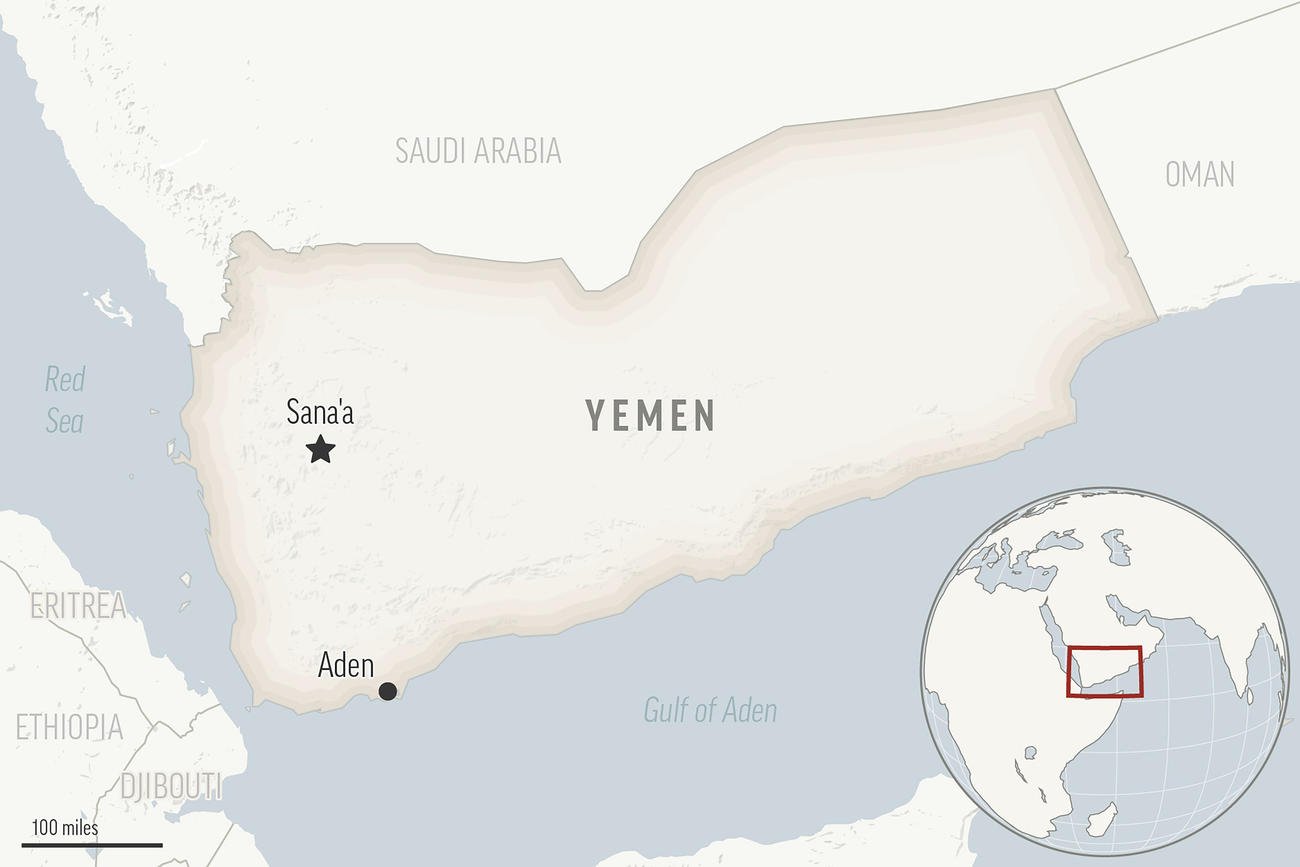
JERUSALEM — Yemen’s Houthi rebels launched a missile Friday at a U.S. warship patrolling the Gulf of Aden, forcing it to shoot down the projectile, the U.S. military said Friday.
The attack on the destroyer USS Carney marks a further escalation in the biggest confrontation at sea the U.S. Navy has seen in the Middle East in decades. It represents the first time the Houthis directly targeted a U.S. warship since the rebels began their attacks on shipping in October, a U.S. official said on the condition of anonymity because no authorization had been given to discuss the incident.
That contradicted a statement by the U.S. military’s Central Command, which said the Houthis fired “toward” the Carney. As it has in previous strikes, the Pentagon has said it was difficult to determine what exactly the Houthis were trying to hit.
Ever since the Israel-Hamas war broke out, the U.S. has tried to temper its descriptions of the strikes targeting its bases and warships to try to prevent the conflict from becoming a wider regional war.
Acknowledging Friday’s assault as a direct attack on a U.S. warship is important, said Brad Bowman, a senior director at the Foundation for the Defense of Democracies.
“They’re now finally calling a spade a spade, and saying that, yeah, they’re trying to attack our forces, they’re trying to kill us,” Bowman said.
Tempering the language, while aimed at preventing a wider war, has had the opposite effect of further enabling the Houthis, he said.
In Friday’s attack, an anti-ship ballistic missile came near the USS Carney, an Arleigh-Burke class destroyer that’s been involved in American operations to try and stop the Houthi campaign since November, Central Command said.
“The missile was successfully shot down by USS Carney,” Central Command said. “There were no injuries or damage reported.”
The attack was the latest assault by the rebels in their campaign against ships traveling through the Red Sea and surrounding waters, which has disrupted global trade amid Israel’s war on Hamas in the Gaza Strip.
The Iranian-backed Houthi rebels did not immediately acknowledge the attack, though they typically take several hours afterward to claim their assaults.
The U.S. and Britain have launched multiple rounds of airstrikes in the time since targeting Houthi missile depots and launcher sites in Yemen, a country that’s been wracked by conflict since the rebels seized the capital, Sanaa, in 2014.
Since November, the rebels have repeatedly targeted ships in the Red Sea, saying they were avenging Israel’s offensive in Gaza against Hamas. But they have frequently targeted vessels with tenuous or no clear links to Israel, imperiling shipping in a key route for global trade between Asia, the Mideast and Europe.
Since the airstrike campaign began, the rebels now say they’ll target American and British ships as well. On Wednesday, two American-flagged ships carrying cargo for the U.S. Defense and State departments came under attack by the Houthis, forcing an escorting U.S. Navy warship to shoot some of the projectiles down.
The U.S. Navy’s top Mideast commander told the AP on Monday that the Houthi attacks were the worst since the so-called Tanker War of the 1980s. It culminated in a one-day naval battle between Washington and Tehran, and also saw the U.S. Navy accidentally shoot down an Iranian passenger jet, killing 290 people in 1988.
___
Copp reported from Washington.
© Copyright 2024 Associated Press. All rights reserved. This material may not be published, broadcast, rewritten or redistributed.









